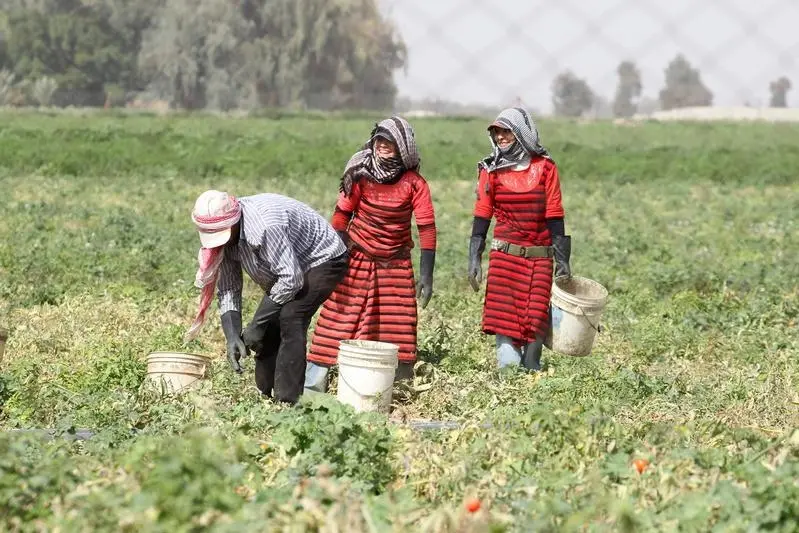PHOTO
AMMAN — The agricultural sector has been facing a shortage in the number of foreign labourers since the closure of airports in March, according to farmers.
“The agricultural sector is one of those sectors which is heavily dependent on foreign labour, especially in the field. This is due to many reasons, one of which is lack of local willingness to take on these jobs,” said President of the Farmers Union Mahmoud Oran.
Oran said that although the issue of replacing foreign labour with local labour has been a topic much discussed in the sector for years, several “practical reasons are slowing it down”.
Oran added: “Our foreign labourers usually have immense experience in the agricultural sector as their home countries depend on it.”
On several instances, farmers complained about the plan to replace foreign labour with local labour force, he noted.
Yacoub Smadi, a farmer in the agricultural region of Naimeh that is located near Irbid, told The Jordan Times over the phone that “local labourers are usually new to the sector and very demanding”.
Smadi added: “Some of the local labours are just as good as my foreign workers, but some think they deserve more than the foreign labour just because they’re Jordanian, which is not fair to my foreign workers who have been working with me for more than six years.”
The coronavirus crisis has exacerbated the problem by “significantly reducing the number of foreign labour entering the Kingdom”, which farmers have complained about.
Meanwhile, Labour Minister Nidal Batayneh said that the Labour Ministry is “comprehensively trying to regulate the number of Jordanian and expatriate workers in the agricultural sector while working on raising the rate of Jordanian participation in this sector”.
“We support the involvement of Jordanian youth in the agricultural sector’s two sub-branches: Plant production and animal production,” said the minister in a statement made available to The Jordan Times.
He pointed out that the ministry is “keen to support the agricultural sector as it is one of the most vital strategic sectors to achieve economic, social and food security”.
Bataineh also said that the Labour Ministry is working in cooperation with the Agriculture Ministry to “review each agricultural region’s share of expatriate workers in addition to setting up a specific and clear mechanism for granting work permits to new and existing expatriate workers”.
Since the opening of Queen Alia International Airport, the ministry has been coordinating with the concerned authorities to set the procedures that will be followed by expatriate workers to re-enter the Kingdom, although this will be done within the limits of the health protocol.
“This will help to organise the labour market and crackdown on any violations made either by employers or employees,” Batayneh said.
© Copyright The Jordan Times. All rights reserved. Provided by SyndiGate Media Inc. (Syndigate.info).





















